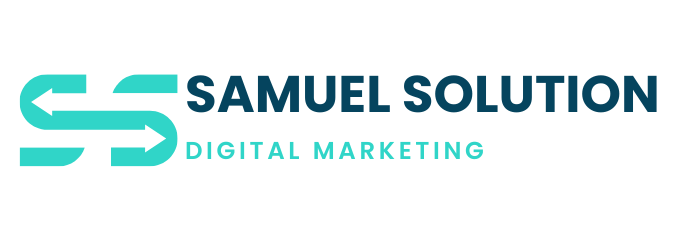Search Engine Optimization (SEO) is essential for Internet marketing. It helps businesses become more visible and attract visitors to their websites. If you want your site to rank higher on Google, it’s important to know these 4 SEO techniques. Each technique helps improve your online presence and reach the right audience. In this blog, we will explore these techniques, share important SEO tips and tools, and offer ways to enhance your business with expert help.
Exploring the 4 SEO Techniques You Should Know in 2025 You Need to Know
-
OnPage SEO: Improving Individual Pages

Onpage SEO is about making changes to your website to improve search engine rankings and user experience.
Key Points of OnPage SEO:
Keyword Use: Use relevant keywords naturally in titles, descriptions, headings, and content.
Quality Content: Write interesting and unique content that your audience will find useful.
Meta Tags: Improve title tags, descriptions, and header tags for better visibility.
URL Structure: Keep URLs short and descriptive with your target keyword.
Internal linking: allows users and search engines to traverse your site by linking to other related sites.
Image Optimization: Use alt text and smaller images to improve loading speed and accessibility.
Example: A blog post that includes keywords like “4 types of SEO techniques” and clear subheadings can rank well on Google.
-
OffPage SEO: Building Credibility

Offpage SEO involves actions taken outside your website to increase its trustworthiness and rankings.
Key Points of OffPage SEO:
Link Building: Get highquality links from trusted websites to improve your site’s authority.
Guest Posting: Write blogs for other sites to gain exposure and backlinks.
Social Media: Share your content and engage with users on platforms like Facebook and Instagram.
Influencer Collaboration: Work with influencers to reach a larger audience.
Online Listings: Add your website to directories like Google My Business and Yelp.
Why It Matters: Google sees backlinks as votes of confidence. More quality backlinks mean higher authority for your site.
Tip: Build links the right way. Avoid bad practices like spammy link building, as they can hurt your rankings.
-
Technical SEO: Improving Site Performance

Technical SEO is about enhancing your website’s structure so search engines can easily crawl, index, and rank your pages.
Key Points of Technical SEO:
Website Speed: Make your site faster to improve user experience and keep visitors from leaving.
Mobile Optimizing: Make sure the website operates properly on mobile devices.
XML Sitemaps: Send an XML sitemap to search engines for better indexing.
Structured Data: To make your material easier for search engines to follow, use schema markup.
Fixing Errors: Address broken links, 404 errors, and duplicate content.
Example Tools: Use tools like Google Search Console and Screaming Frog to find and fix technical problems.
-
Local SEO: Improving Local Searches

Local SEO is important for businesses that want to reach customers nearby. It helps your business show up in local search results when people look for services in their area.
Key Parts of Local SEO:
Google Business Profile: Set up and update your Google Business Profile with accurate details.
Local Keywords: Use keywords like “SEO services near me” or “SEO expert in [city].”
Customer Reviews: Ask customers to leave good reviews on Google and other sites.
NAP Consistency: Make sure that your contact information, address, and name are consistent everywhere.
Localized Content: Write content about local events, news, or success stories.
Why Local SEO is Important:
46% of Google searches are local. Without local SEO, you could miss out on nearby customers.
What Should Be in SEO Tools?
SEO tools help you check how your website is doing, find problems, and improve it. Key features to look for include:
Keyword Research: Tools like Ahrefs and SEMrush help find useful keywords.
Site Audit: Tools like Screaming Frog and Google Search Console help spot technical issues.
Backlink Analysis: Check backlinks with tools like Moz Link Explorer.
Content Optimization: Platforms like Surfer SEO help make content better for keywords.
Performance Tracking: Tools like Google Analytics show how much traffic you have and how users behave.
4 SEO Techniques You Should Know in 2025 and What are SEO Rules?
To succeed in the long run, follow these important SEO rules:
- Create Quality Content: Make sure your content is valuable, unique, and easy to read.
- Don’t Overuse Keywords: Use keywords naturally in your writing.
- Improve Site Speed: Fast websites give better user experiences.
- Mobile Optimization: Make sure your site looks good on all devices.
- Build Backlinks: Get quality backlinks from reliable websites.
- Follow Google Rules: Avoid using tricks that break search engine rules.
Is Paying for a Social Media Manager Worth It?
Yes! A social media manager can boost your online presence by:
Creating engaging and consistent content.
Running ads to increase traffic and sales.
Interacting with customers and building connections.
Analyzing social media data for ongoing improvement.
When combined with SEO, social media marketing can help grow your business even more.
What You Need for SEO:
To run effective SEO strategies, you need:
- Keyword Research Tools to find valuable search terms.
- SEO Content Writers to create good, optimized content.
- Technical Experts to fix website problems.
- Backlink Builders to improve your site’s authority.
- Performance Trackers: to measure results and adjust strategies.
Conclusion
Let Samuel Solution Help You with SEO
Learning and using the four types of SEO—onpage, offpage, technical, and local—can greatly improve your online presence. Remember, SEO takes time, knowledge, and effort.
If you want to boost your business with effective SEO strategies, Samuel Solution is ready to help. Our team of experts offers personalized SEO services to enhance your website’s visibility, attract more traffic, and achieve real results.

